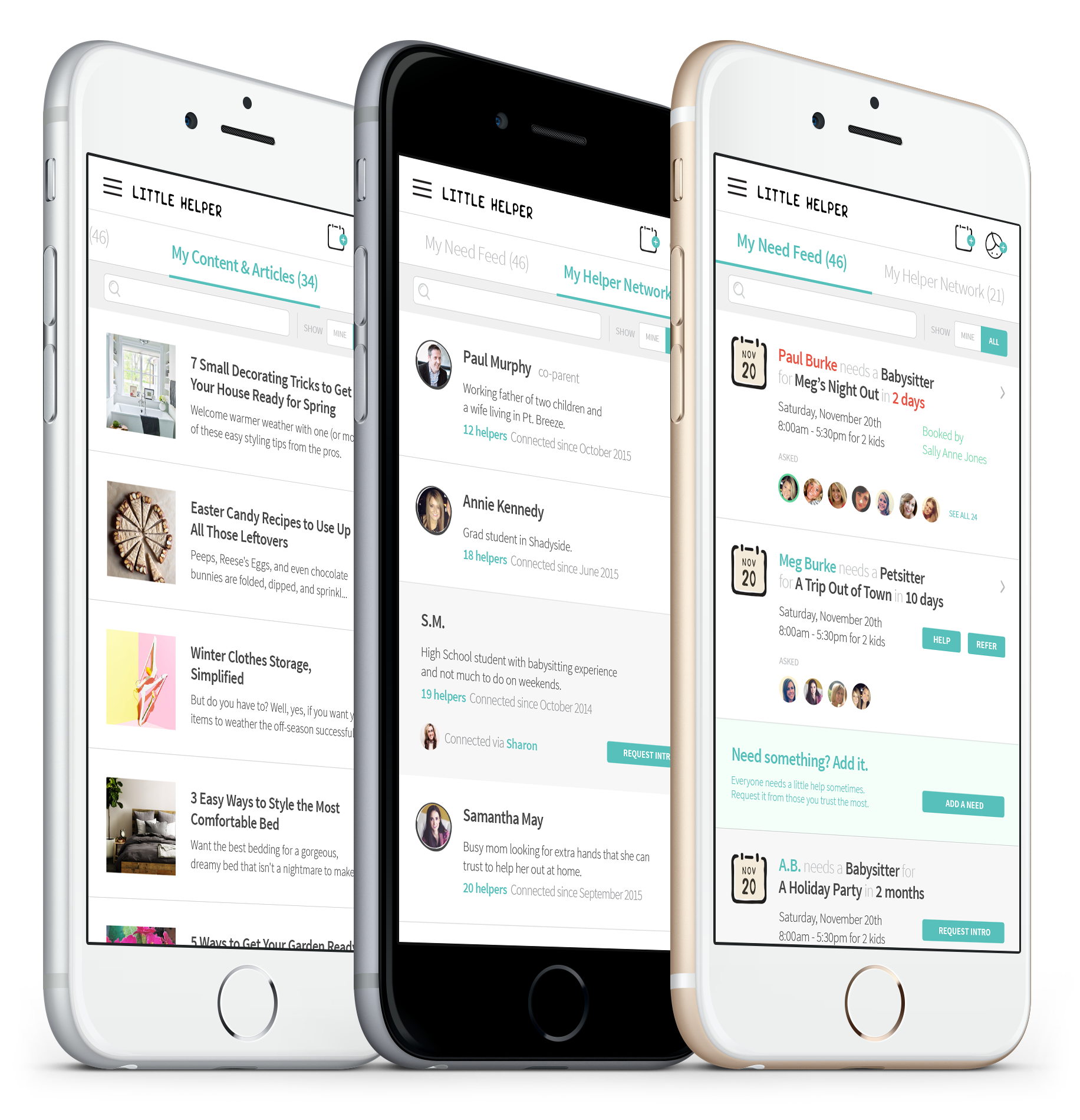Connect close-in networks in the share economy
In 2010, our family was starting to grow and we were beginning to settle into our community. As we started to connect with other parents, the conversation grew around the lack of tools available to help two parent working families schedule sitters and support—and how the tools that were available weren’t trusted by new parents who had become incredibly cautious and protecting of their young children.
Little Helper was a start up that sought to take on that challenge. The mission was to enable a “micro-network need management service” for busy families unwilling to broadcast their needs through a broad and unsecured social platform. By building a network among only their most trusted family and friends, the goal was to enable close-in communities to give and get support in a safe and secure environment.
A lightweight scheduling tool for families to share resources
At various age ranges, families have the need for in home support of one kind or another. But with all the public social media tools and pay-to-play resource networks out there, we were finding that families didn’t want to reach out into unfamiliar places for this care. As a result, they’d typically ask their close and trusted friends and relatives.
By establishing a micro-network that allows users to publish needs to a private job board that is only visible by their trusted and approved network, the Chief Household Officer could find support among those she trusted without having to broadcast that she was planning to leave her kids home alone.
Researching the needs of the ‘Chief Household Officer’
Intended to be trusted but familiar, our playful, illustration-based design was launched and tested directly with our audience. With their children safely protected upstairs by verified babysitters, parents came together to discuss the importance of micro-networks, try and sign up for the product, and offer realtime feedback on the tools. Through that feedback and agile design and development practices, we built and launched four versions of the responsive, mobile-web service to this core set of test users.






